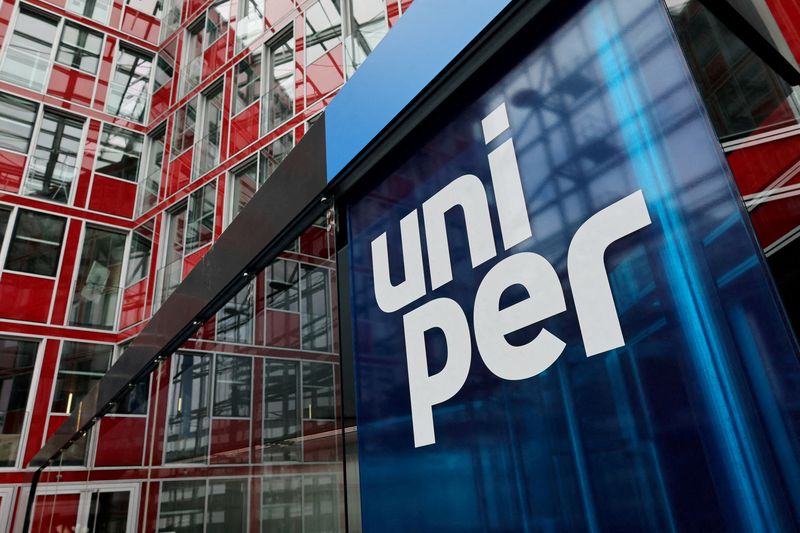By Christoph Steitz and Tom Käckenhoff
DUESSELDORF (Reuters) - Uniper is opposed to being bought by a rival as part of Berlin's efforts to sell down its 99% stake in the German energy trader, which was bailed out at the height of Europe's energy crisis, its chief executive said.
Uniper had to be rescued by the German government for 13.5 billion euros ($14.6 billion) in 2022 after former main supplier Gazprom (MCX:GAZP) halted flows, but considerations of how Berlin can start selling down its holding have started due to the group's recent turnaround.
Options range from the sale of a 20%-30% stake on the open market to the disposal of larger blocks of shares to bigger investors, sources have said. Under German takeover laws, suitors must launch a full takeover bid if they acquire 30% of a listed company.
"We do not want to be taken over or integrated into another company. We believe that Uniper can make a special contribution to the energy transition as an independent company," CEO Michael Lewis told Reuters.
This marks the first time Lewis has spoken out against a potential takeover as part of Germany's efforts to exit the group, keen not to repeat the ill-fated partnership with Finland's Fortum which previously sought to buy Uniper.
He said it was possible that the state would remain on board as a shareholder, in line with demands by workers for Berlin to keep a blocking minority, or that investors subscribe to shares in the group once the German government decides to sell.
Uniper is still recovering from the energy crisis and while it no longer receives Russian gas directly its contract with Gazprom worth around 250 terawatt hours, or roughly 30% of Germany's demand in 2022, still legally exists.
Uniper has sought billions of euros in damages from Gazprom and has launched arbitration proceedings that it expects will result in a court ruling in the summer.
The crisis has forced Uniper to procure its gas from other destinations, including the United States, while talks with Qatar, one of the world's biggest exporters of liquefied natural gas (LNG), are ongoing.
"We are still in talks with Qatar about potential supply contracts," Lewis said. "However, there are still some differences of opinion on the issues of duration, indexation and destination clauses."

Qatar recently expanded its LNG output by 2030, which market experts expect it to lead to lower contracting prices and more Asian buyers inking deals. At the same time, competition from the United States has made it easier for European buyers to strike supply agreements with comparably shorter durations.
($1 = 0.9245 euros)